
Lines On The Water
How to become an angling coach
If you’re a competent angler, you’re already on the way to becoming a registered coach. And now, thanks to changes in the qualification process, the pathway to making the jump – for those who want to leap – is easier than ever before.
Have you ever thought about becoming an angling coach? Ever considered passing on your own knowledge to youngsters or general converts who might need some experienced guidance? Perhaps you’ve always thought that as an ‘average’ angler, there was no place within the pyramid of tutoring for someone like you?
If you’ve answered ‘yes’ to any, or all these questions, a simpler, more streamlined process for coaching awards might just be the final piece of a jigsaw you probably thought you would never complete.
A review of safeguarding known as The Whyte Review, which was published in June 2022, prompted Sport England and the Chartered Institute for the Management of Sport and Physical Activity (CIMSPA) to look at professional standards for coaching across all sports. Consequently, angling took that lead and conducted its own review of how individuals qualify as coaches and potentially, progress through to higher levels of attainment. The outcome of this domino effect of change is that qualification as an officially registered angling coach, has been simplified within a framework of clear regulation.
“We went into a period of consultation and spoke to several organisations about what they wanted and how we could change things,” says Richard Hadley, who is Coaching Centre Manager and Lead Safeguarding Officer at the Angling Trust.
“We’ve come up with a new Level 2 award, known as ‘Angling Event Lead Coach’ which equips coaches to coach within events and bring through youngsters or people who want to start fishing. The course is still conducted through a weekend with four, linked sessions away from the tutoring which covers risk assessment, planning, self-review and third-party observation. Then there’s a final assessment before qualification.”
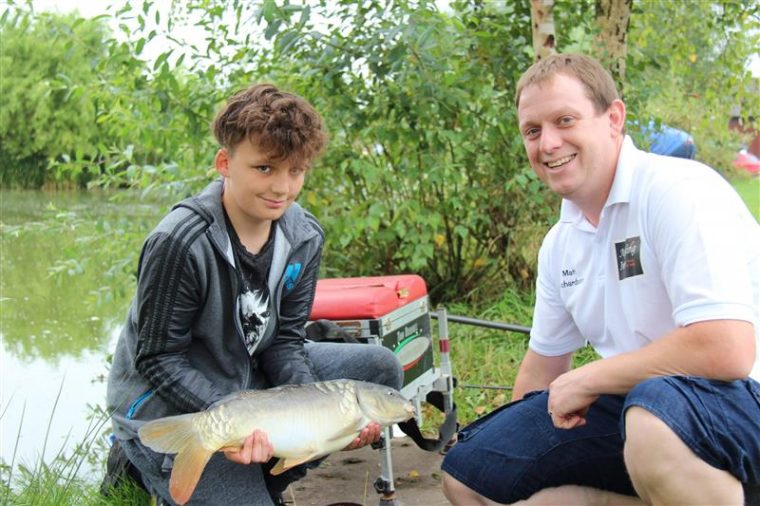
Level 1 is still available until June next year but the cost for the Level 2 award is being reduced to inspire candidates towards a greater and more direct level of impact and eliminate the added cost of the entry level award. The change is significant in practical terms too. Anyone qualified at Level 1 remains restricted to working in support of a Level 2 coach. A Level 2 qualification means you can operate independently.
Previously qualified coaches aren’t affected by the changes and they don’t need to re-apply under the re-structure.
“The course is very practical,” says Richard. “There are coaching skills and tools included that are recognisable from the old course such as observation and demonstration, analysis and feedback, but now there’s an in-house, event safeguarding element which focuses on managing events.”
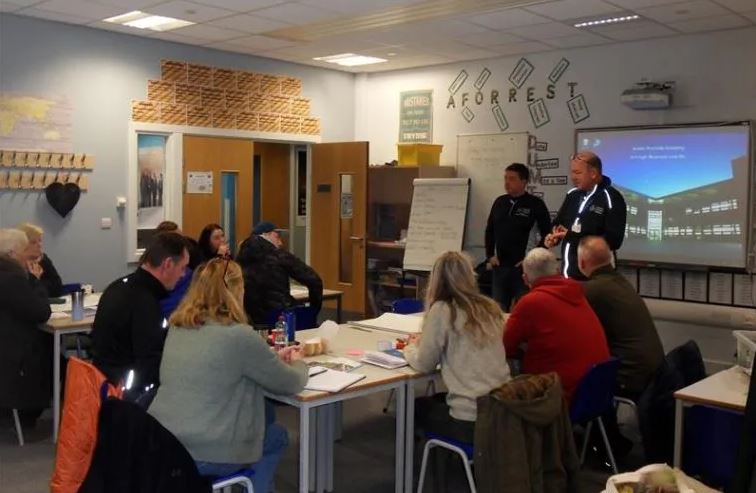
New coaches will help get more people fishing
“In parallel to the Angling Lead Coach award, we’re also developing an Angling Guide qualification which looks at people who might not want to coach but want to take people fishing and provide a safe environment for their customers,” says Richard. “All of these changes are mapped towards the nationally recognised professional standards and if people want to upgrade to higher certificates in coaching, then we’re in partnership with a third party. They will deliver the extra work online before we assess the candidates at the end of it and hopefully award the certificate.”
The changes to angling’s coaching programme, which is part funded by the Environment Agency, are based on recognised need after consultation and a fundamental requirement to deliver angling participation safely. Within the Angling Trust itself, projects such as Reel Education and Get Fishing are very much in demand and clubs and organisations across the country have need for qualified support too. The new streamlined approach is intended to more easily develop an appropriate grassroots workforce that will support the interests of those wanting to come into the sport. In short, a joined-up approach towards the goal of getting more people fishing more often.
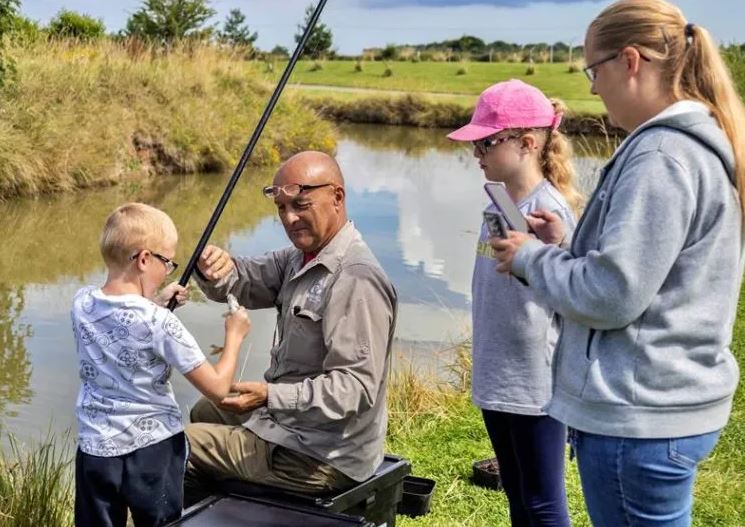
Do you remember your first fish?
Demand will determine location. A national Coach Education workforce will conduct bespoke local courses across the length and breadth of England where a concentration of interest requires it. Anglers in Wales can participate in the Trust programme with those in Scotland covered by a separate, Scottish qualification.
One additional element that has proved popular in the past is the Environment Agency’s bursary programme which is funded by rod licence income. A bursary can provide potential support towards the cost of a coaching course with a reduction offered to volunteers who will commit to the delivery of 10 sessions upon qualification. When available, news of the bursary option in 2024 will be posted to the Angling Trust website via the link below.

“We’re in a good place,” says Richard. “We’ve currently got 804 licenced coaches and the target is to get it up to around 1,200 across the country in the next four years. We know the interest in fishing is there, but our capacity to help currently isn’t. The Reel Education project tells us there’s a high proportion of children we see who want to go fishing. We need to be able to transfer that interest into opportunity with recognised, safe coaching.”
- Further details of the coaching programme and forthcoming options can be found on the Angling Trust website.
- Check currently registered coaches listed in your area.
- To discuss options directly:
-
- Email: coaching@anglingtrust.net
- Call: Coaching Centre Manager Richard Hadley on 07720 974 811
You might also like
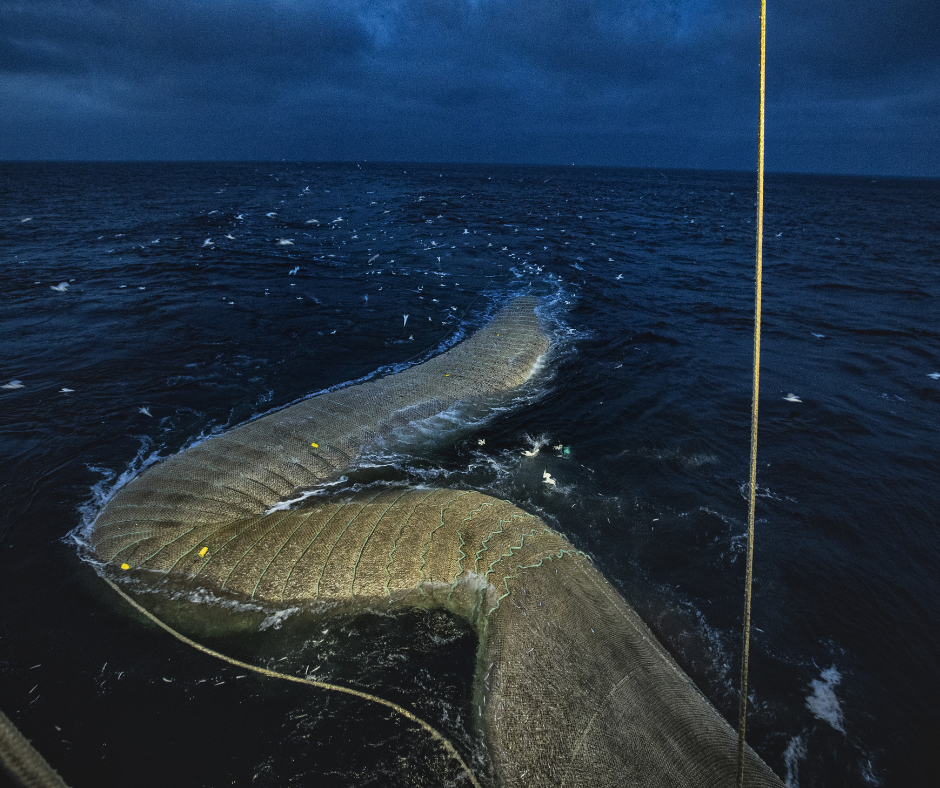
Government Announces Ban on Bottom Trawling in 41 Marine…

Angling Trust Presses Water Commission to Go Faster and…

VIDEO: Alice and her 3 boys have a day…
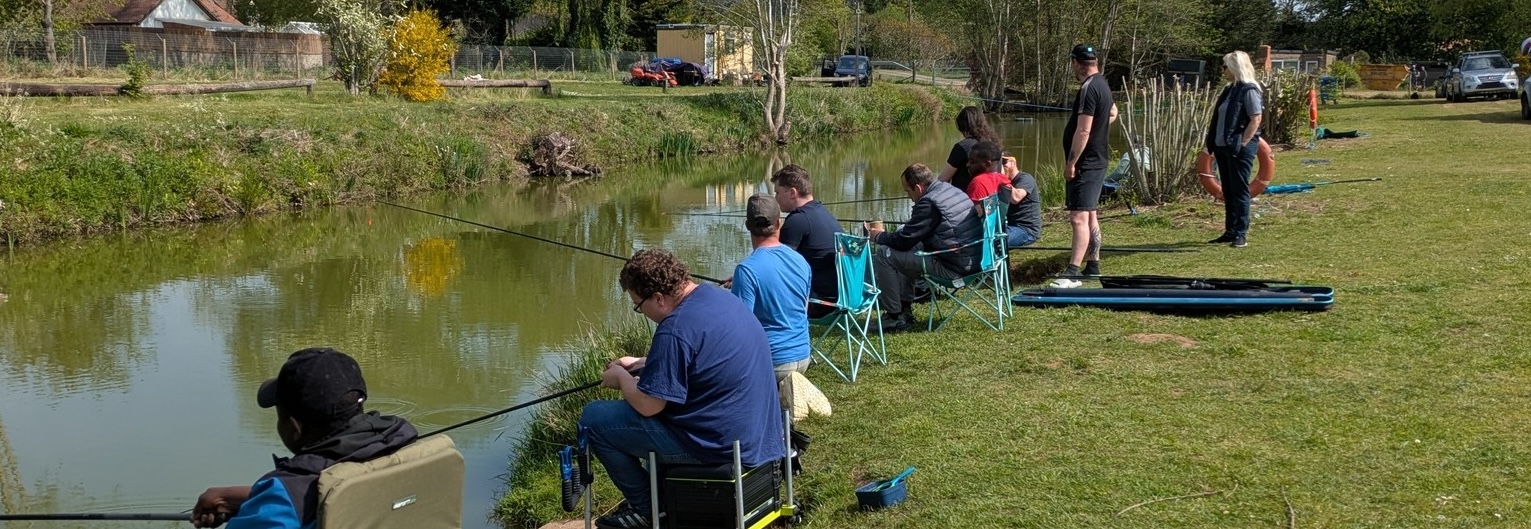
Recovery Rods help boost mental health and wellbeing by…

Teddy is hooked! – back for more fishing and…

Thank you to all our volunteers – you do…

Get Fishing Fund – Funded Project: HACRO were visited…
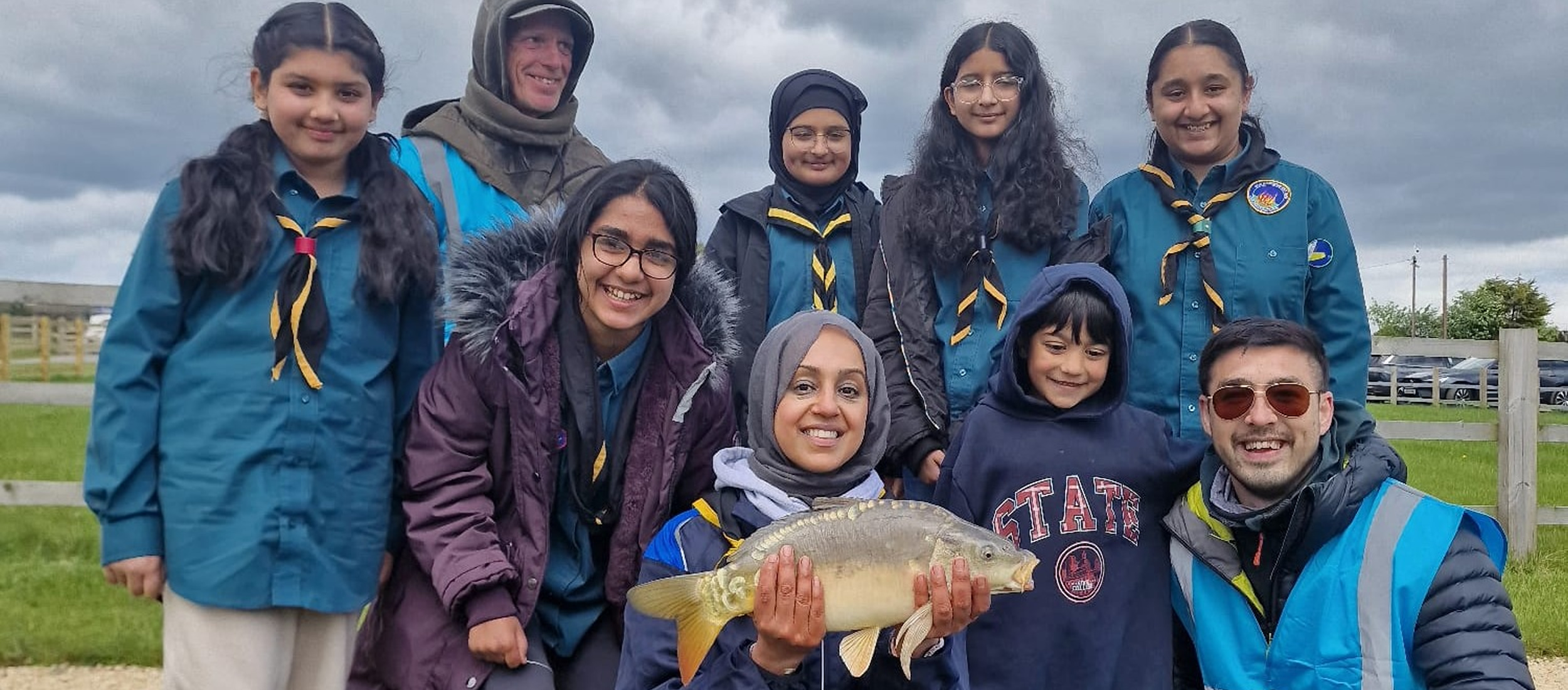
New Horizons had an amazing day taking part in…
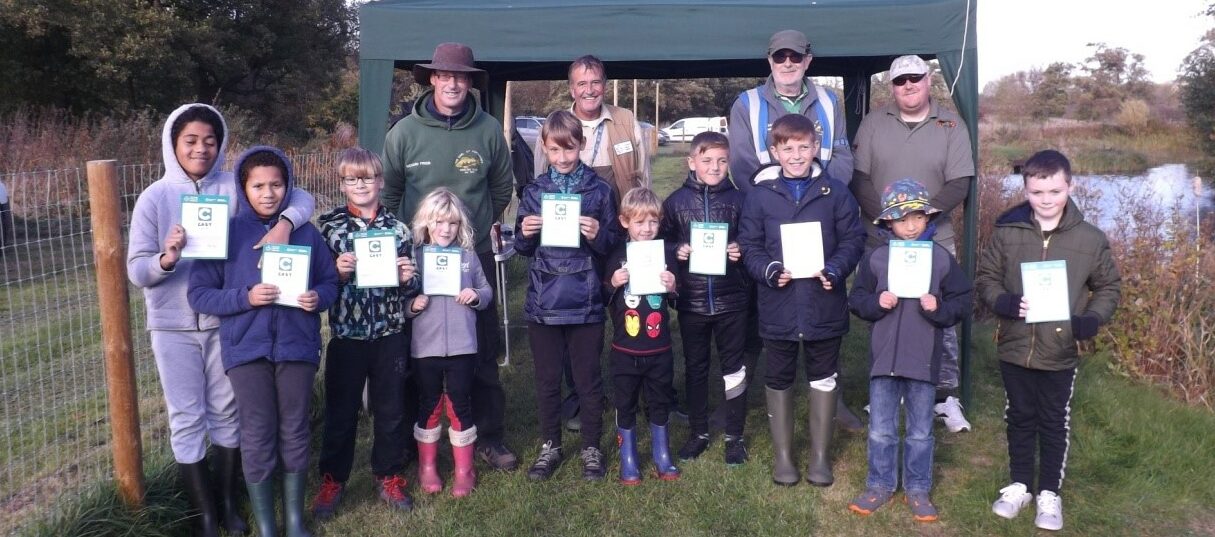
Get Fishing Fund – Funded Project Blog: Steve Clamp…
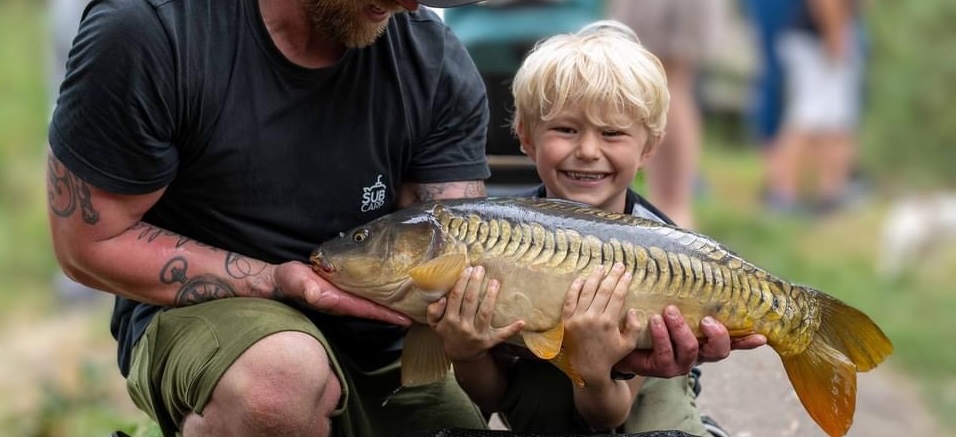
Somersham Angling Club hosted some fabulous Get Fishing events…
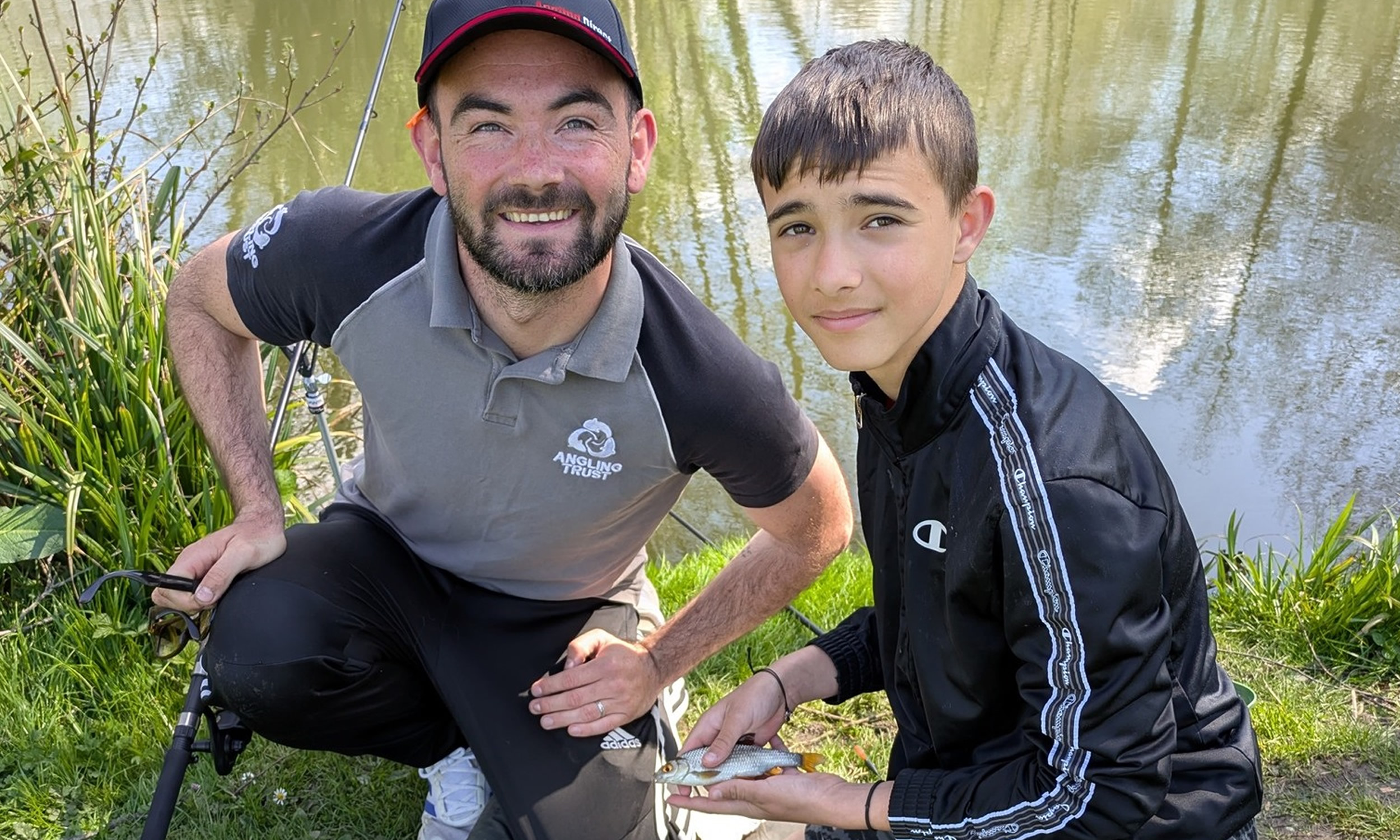
BLOG: Jack’s Back! What’s been happening in my East…

We want a water industry fit for purpose

Government Announces Ban on Bottom Trawling in 41 Marine…

Angling Trust Presses Water Commission to Go Faster and…

VIDEO: Alice and her 3 boys have a day…

Recovery Rods help boost mental health and wellbeing by…

Teddy is hooked! – back for more fishing and…

Thank you to all our volunteers – you do…

Get Fishing Fund – Funded Project: HACRO were visited…

New Horizons had an amazing day taking part in…

Get Fishing Fund – Funded Project Blog: Steve Clamp…

Somersham Angling Club hosted some fabulous Get Fishing events…

BLOG: Jack’s Back! What’s been happening in my East…

We want a water industry fit for purpose

Government Announces Ban on Bottom Trawling in 41 Marine…

Angling Trust Presses Water Commission to Go Faster and…

VIDEO: Alice and her 3 boys have a day…

Recovery Rods help boost mental health and wellbeing by…

Teddy is hooked! – back for more fishing and…

Thank you to all our volunteers – you do…

Get Fishing Fund – Funded Project: HACRO were visited…

New Horizons had an amazing day taking part in…

Get Fishing Fund – Funded Project Blog: Steve Clamp…

Somersham Angling Club hosted some fabulous Get Fishing events…

BLOG: Jack’s Back! What’s been happening in my East…









